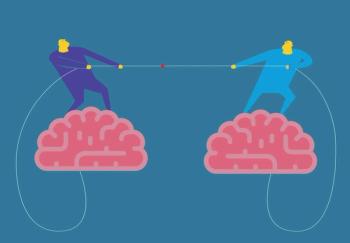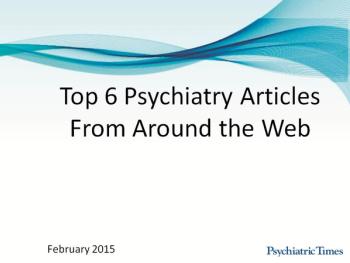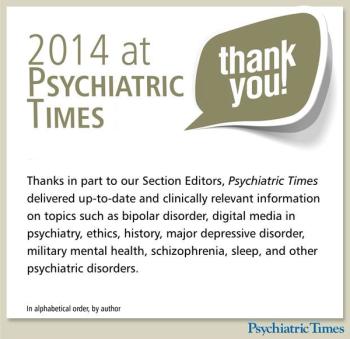
A blog on the cultural components of minority groups, mental illness, and stigma.

A blog on the cultural components of minority groups, mental illness, and stigma.

Years ago I read somewhere that dying is easy-the hard part is being left behind. But I recently met an older woman who taught me otherwise.

What if we were able to harness the immense power of our digital connections to create tools that can potentially make our lives happier and healthier?

When did human rights become negotiable in the US? A commentary on dismantling and closure of federal and state mental hospitals.

What psychiatry needs is a new approach to “psychiatric theory.” Here are a few practical suggestions.

Here's how a single question I don't normally ask changed the course of one patient's life. The story highlights how widespread the effects of violence are.

Consider Nico-he is a bilingual dog-he understands and responds to both Russian and English because both languages are spoken at home.

Dr Wayne Katon (1950-2015) revolutionized care for patients around the world.

Editors' choices of noteworthy psychiatry blogs, CMEs, research studies, cases, and books from around the Web.

Violent intolerance seems to be on the rise, and psychiatrists must contribute more of our understanding about the origins of these problems, and to development of solutions to reverse these trends.

Is it okay for the media to show terrorist-sponsored torture videos? Are there no psychological effects of this kind of “show”?

Many years ago, the model approach to mental health treatment was the therapeutic community: "As Aristotle noted long ago, man is a social animal and only in a social unit can he experience a whole life." More in this blog.

Dr Moffic takes us around the world to celebrate the lives of psychiatrists who made important contributions to the field.

Everyone who has ever billed a third party for psychiatric care knows that lack of “medical necessity” is the catch phrase used throughout the insurance industry to deny care that the clinician who has actually evaluated the patient has determined is needed.

This article reviews what is known and unknown about LGBT suicide risk, discusses risk and protective factors for LGBT adolescents and adults, and provides recommendations for assessing and treating LGBT patients.

The Psychiatric Views on the News series for Psychiatric Times attempted to bring together societal events and psychiatry to start a conversation. Is a psychiatric view on the news important? If so, what other stories have caught your attention, and why?

When widespread fear and anxiety about the spread of an infectious disease stress our society, psychiatrists can play a variety of important roles in population health management.

Because of the widespread use of selfies by young people in social media and digital communication, it is important to examine the psychology behind the selfie as well as ways mental health professionals can talk to adolescents and their parents about these issues.

Clinically relevant information by our Section Editors, on topics such as bipolar disorder, digital media in psychiatry, ethics, history, major depressive disorder, military mental health, schizophrenia, and sleep disorders.

The funding of mental illness services in the US is more thought-disordered than any of the thought-disordered patients it is meant to serve.

I had planned to make this month’s column about the best 10 advances in psychiatry during 2014. While some things changed for the better for our patients and their families-and our profession-I’ve been having a hard time with my list.

How do we catch up with other developed countries to create a compassionate, cost-effective mental health system? Psychiatric Times posed this question to some of the leading experts in the field.

In this commentary, the author states, “We must get back to treating the whole person, not just his brain circuits. The brain is involved in all we do and what we are, but it is also itself influenced by our psychology and social context.” Care to weigh in?

This article provides a practical framework that can guide consultation-liaison psychiatrists through solving problems of capacity and informed consent.

The case for training residents to conduct evaluations of impairments in patients with chronic mental health issues.